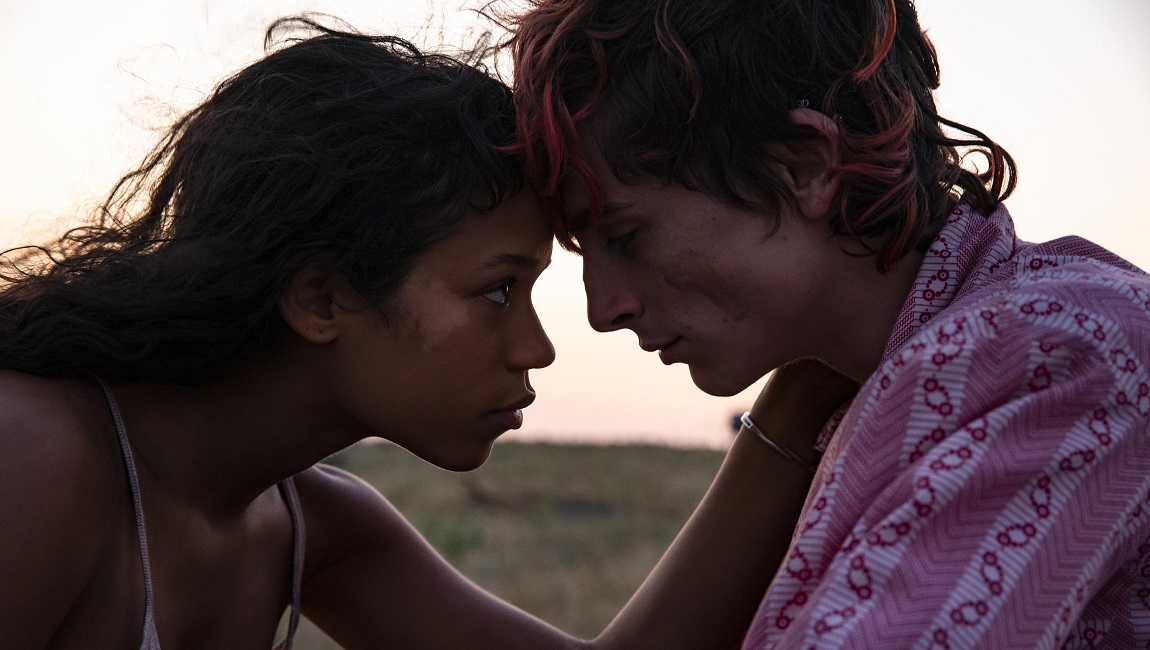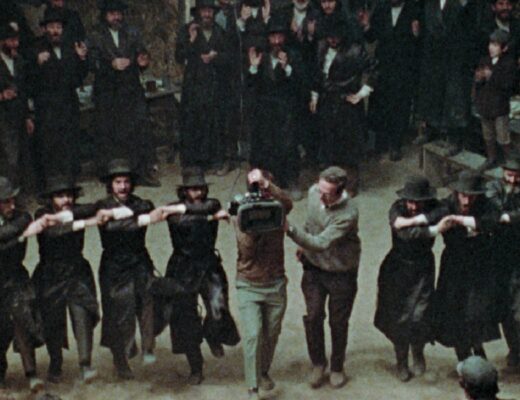Bones and All isn’t successful across the board, but it thankfully prioritizes Guadagnino’s strengths and results in arguably his finest film.
Nearly six years out from its Sundance premiere, Call Me by Your Name has seen its cultural reputation dimmed considerably amidst revelations of star Armie Hammer’s unsavory predilections, as well as a general begrudging, retroactive admittance that that film’s central relationship might be more predatory than romantic. Regardless, director Luca Guadagnino and other star Timothée Chalamet remain celebrated in their respective fields, and their inevitable follow-up collaboration eagerly anticipated. Now, having taken some time apart with Guadagnino helming Amazon Studios’ grotesque Suspiria remake and Chalamet racking up big-budget credits like Dune and Don’t Look Up, that reteam — a cannibal romance/road movie entitled Bones and All — has arrived, though one has a hard time imagining it capturing the zeitgeist in the same way that earlier collab did. This isn’t to say that Bones and All is bad; in fact, it’s likely Guadagnino’s finest effort to date, and more so, the film commits to its premise all the way, delivering a romantic coming-of-age tale steeped in Trouble Every Day levels of gore and viscera.
Adapted from Camille DeAngelis’ 2016 YA novel and working off a script from favored Guadagnino screenwriter David Kajganich (the aforementioned Suspiria as well as the inscrutable La Piscine remake, A Bigger Splash), Bones and All operates in an unusual tonal space, bringing a sense of near fairytale whimsy to a project that features a teen girl getting her fingers chomped off in its first 10 minutes. The chomper in question is Maren, played by the now-ascendant Taylor Russell (so excellent in the Escape Room films, yet probably better known for her turn in Trey Edward Shults’ ultra-goofy Waves), who, despite the Chalamet hype, definitively owns this story. Born with an uncontrollable appetite for human flesh, Maren and her father (André Holland) live an intentionally isolated life in an attempt to mitigate the young woman’s uncontrollable cannibal urges — that is, until the events of the film’s opening. The duo hit the road with no time to spare, but soon father Holland (who does not share his daughter’s affliction) abandons Maren somewhere out in the American Midwest with nothing but a cassette tape describing what little he understands of her origins. This sets her off on an epic journey deep into the Rust Belt, where she encounters a number of character actors in major freak mode (a rat-tailed Mark Rylance resurrecting his BFG voice, plus Michael Stuhlbarg making a credible case for future inclusion in the Rob Zombie-verse), ultimately landing with Chalamet’s Lee, who shares the disease but is similarly good-natured. Romance sparks and much violence ensues as the couple trek across the region killing and feeding, all while trying to outpace Rylance’s unhinged cannibal elder and locate Maren’s estranged kin.
Nominally set in the 1980s, though not really identifiable as such save for some music cues and a lack of certain technologies, Maren and Lee’s trek across the country inevitably becomes representative of a conflicted, emerging national conscience destined to fracture into America’s current-day political landscape, archival news footage of a younger Rudy Giuliani stitched-in upfront for the unperceptive. Bones and All marks Guadagnino’s first feature set in America, and while there’s some intensity to his critiques and observations, his outsider’s perspective doesn’t really come with a fresh angle, nor does it even rise to the level of Andrea Arnold’s remarkably similar American Honey, which at least had the audacity to try and directly address the moment it was made in. But despite that lack, the film satisfies anyway, prioritizing chic, pulp thrills more often than it resorts to heavy-handed messaging, opting for a less specific but more affecting exploration of the tension between short-term survival and the long-term collective betterment of the human species. Even this doesn’t all come together super cleanly, Kajganich’s screenplay too frequently sidetracked by a less compelling doomed romance angle for a true thesis to form, but Bones and All’s refusal to really commit to its Big Ideas ends up being a relief, prioritizing Guadagnino’s penchant for reevaluating pop iconography to cool, if not brilliant results.







